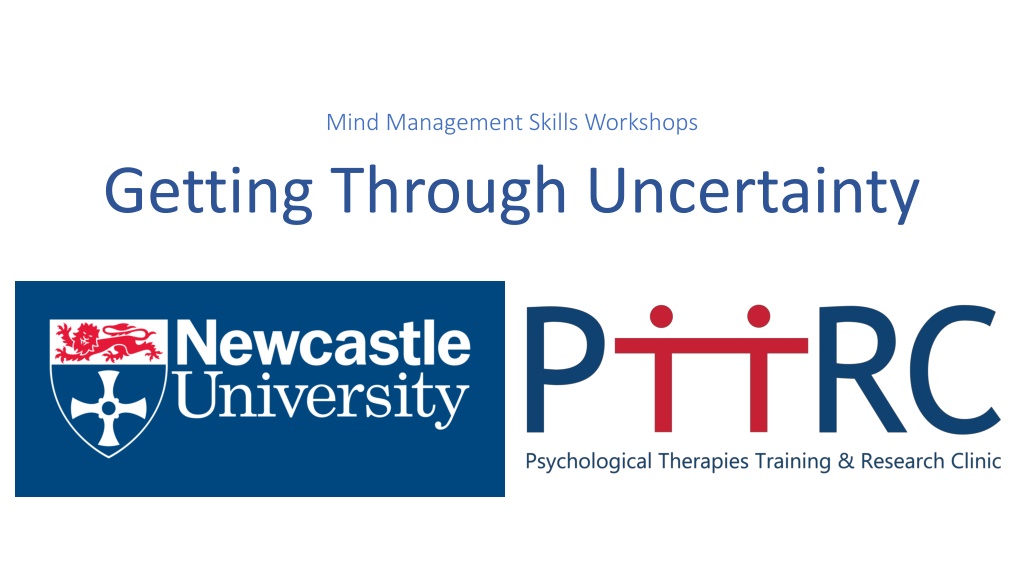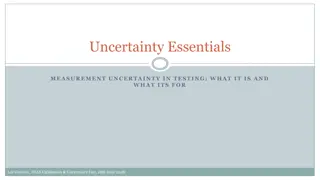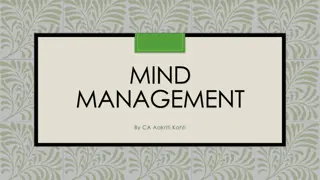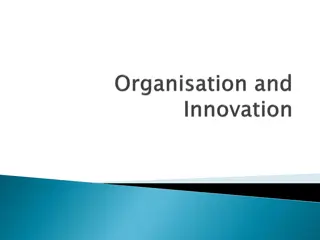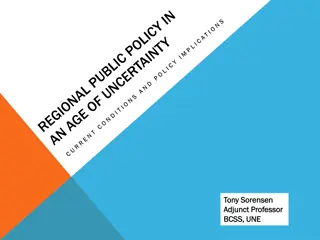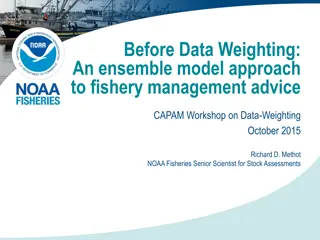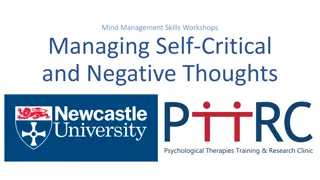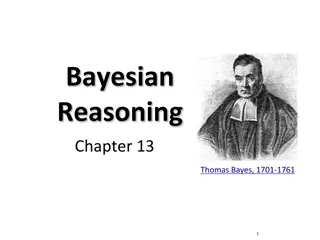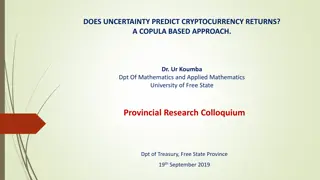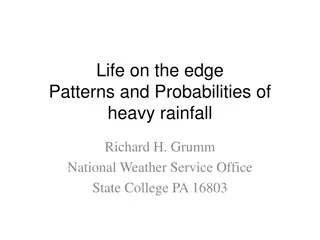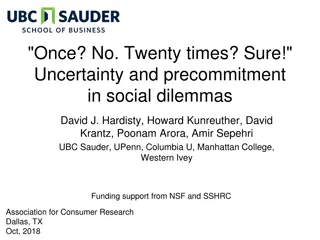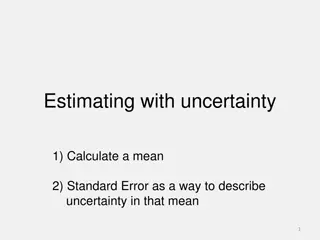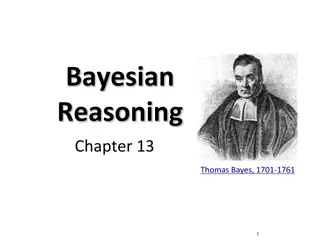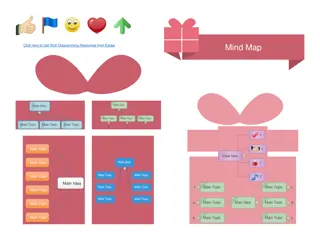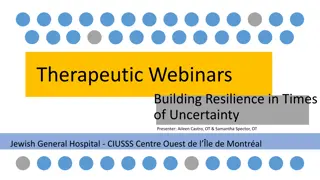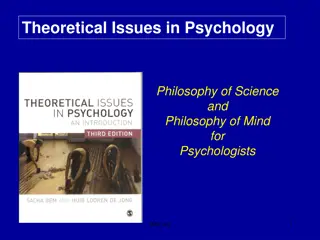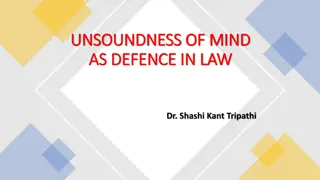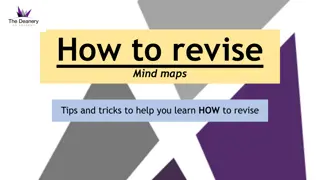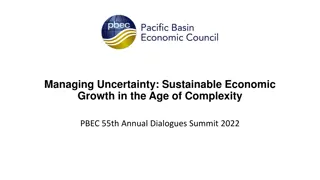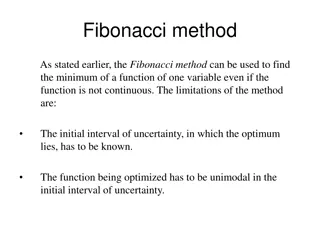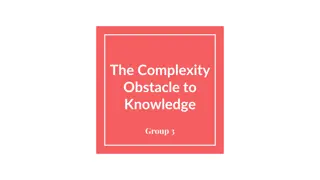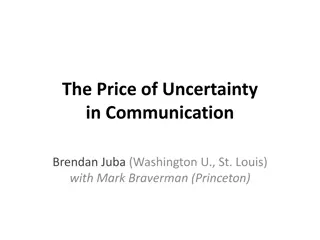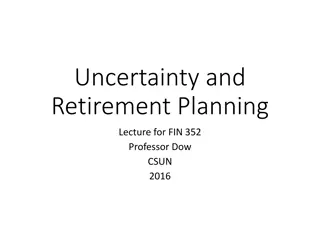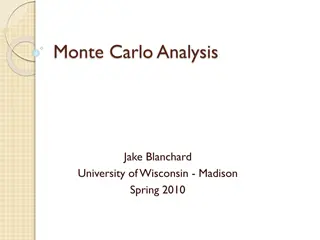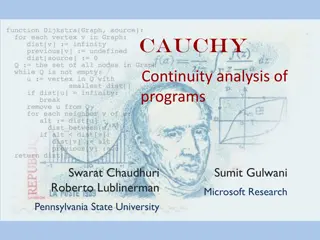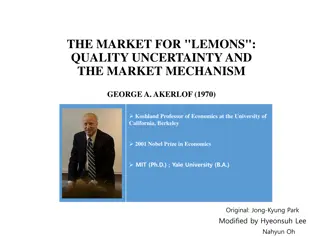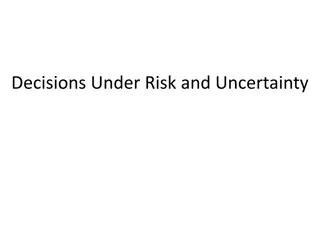Effective Mind Management Skills Workshop for Overcoming Uncertainty
Explore the concept of worry and uncertainty in the mind management skills workshop. Understand the vicious cycle of worry, practice skills to manage worry effectively, and review your progress through homework assignments. Discover how worry is a response to uncertainty and learn strategies to break free from negative thought patterns. Gain insights into recognizing and modifying behaviors for a more helpful response to challenging situations.
Download Presentation

Please find below an Image/Link to download the presentation.
The content on the website is provided AS IS for your information and personal use only. It may not be sold, licensed, or shared on other websites without obtaining consent from the author. Download presentation by click this link. If you encounter any issues during the download, it is possible that the publisher has removed the file from their server.
E N D
Presentation Transcript
Mind Management Skills Workshops Getting Through Uncertainty
Goals for today Homework review Understand what worry is Understand uncertainty and explore our tolerance to this Exercises to help us manage worry and uncertainty more effectively Practicing skills
Homework Review Did you notice mood changes were you aware you were experiencing negative thoughts? Were you able to notice how you were responding? Were you able to generate alternative thoughts? Were you able to modify your behaviour to a more helpful response? Feedback
What is worry A chain of negative thoughts, images and doubts about things that might happen in the future (things which are uncertain) One worry leads to another creating a vicious cycle Usually focused on worst case scenarios or outcomes
What is worry Worry is what we do normally in response to uncertainty It s a behaviour i.e. its something we do or engage in, despite being a mental process Its purpose is normally to ascertain some sort of control or certainty on whatever the feared scenario is we are worrying about
A Vicious Cycle of Worry Situation/Trigger Zoom meeting with sponsors Thoughts/Images What if they think I have not done enough, what if my work is not up to standard? What if what I have done is completely wrong? They will think they gave the grant to the wrong person, they will pull the plug on the project, what will I do then? I will fail, I will never have a career or be successful Emotions Anxious, worries, scared, fear Physical Feelings Stomach butterflies, on edge, tense Behaviours Worry, imagine worst case scenarios, seek reassurance from peers, mentally prepare
Skills Practice 1 Noticing when you are in a vicious cycle Using handout 1 from week 1 noticing when we are stuck , recall the last time you were worrying You might notice a lot of your thoughts begin with what if Map out the interaction between your thoughts, emotions and behaviours when you were worrying
Two types of worry Hypothetical Practical worries
Uncertainty Uncertainty is like hayfever in that when someone who has hayfever is exposed to a small amount of pollen, the body reacts with a huge response i.e. sneezing, red eyes etc. Everyone is different in their tolerance to pollen Just like hayfever, we all have a varying tolerance of uncertainty, which can depend on different situations and contexts we may face in our lives. When faced with uncertainty, our body reacts, it can become tense, anxious, and we start to worry to try and gain some sort of control over the feared outcomes of our worries 0% 100% tolerance tolerance
Hypothetical worries and uncertainty How much pain they have cost us, the evils which have never happened Thomas Jefferson Hypothetical worries are generally future focused predictions about what might happen, regarding an outcome that is uncertain They typically start with what if They are non-tangible (the problem does not exist in the here and now) hence they are difficult to action Dealing with every single hypothetical worry you experience can be like playing whack a mole in the arcade it never ends and can become exhausting, and can lead to more severe anxiety difficulties
Why we worry in response to uncertainty Worrying helps me to be prepared and solve problems Worrying motivates me Worrying protects me from feeling bad later Worrying can prevent something bad from happening Worrying shows I care Worrying helps keep me safe Do any of these statements sound like you? Do any others spring to mind?
Generating Alternatives to the usefulness of Worry 1. Notice or pin down the worry and consider why you are worrying about it I am noticing that I am having the worry what if I fail ? if I worry about failing now I will be better emotionally prepared for it when it happens 2. Question the usefulness of worrying about it Has worrying emotionally prepared me for things before? How has this belief helped me before? Has it ever worked? When has it not worked Worrying about this is hypothetical and distracting me from the future, every time I have worried about this before the outcome is never how I imagined it to be in my head, if I fail I will be just as upset, if not more than I am now just worrying about it 3. Generate a more balanced thought that fits the situation
Skills Practice 2 Generating alternative to the usefulness of worry Take one of the prior statements that resonates with you from the previous slide Consider when this belief has worked for you What facts do you have to support this usefulness of worry When has it not worked Consider when you notice you are thinking this way do you believe it? Considering this generate an alternative as to how useful worry is
Behavioural Response to Uncertainty Passive Active Over working, doing everything yourself Gathering lots of information and preparing prior to attempting something Going over and over work and/or other things, checking Seeking reassurance Taking control, perhaps doing things for others Procrastinate, put things off Ruminating over past events rather than focusing on the here and now Avoid fully committing to things Finding excuses to not to certain things
The importance of behaviours Possible Function (intended consequence) If I work really hard, check all sources of information and check my work over and over I will not fail I can be more certain I will not fail (outcome) Worry / thought What if I fail, I wont get a job after my PHD Emotion: Anxious Get temporary relief from distress and uncertainty If I don t do it then the outcome is certain Unintended consequence Behaviour Burnout, anxiety, stress zone Overcompensate, (more hours spent working) [approach behaviour] Low Mood, more worry. Procrastinate, avoid task at hand [avoidance behaviour] I don t learn I don t fail without the behaviour
Skills Practice 3 Changing Behaviour Look back at your earlier thoughts feelings and behaviours map, was your behaviour an active or passive behaviour in an attempt to manage uncertainty? Using your hand out (3) in your groups of 3-4, consider: What was the function of what you were doing? What was your intention in this behaviour? What were the possible unintended consequences of this? What would be a more helpful behavioural response?
Changing Behaviour Worry is a behaviour it s a mental process which we spend time engaging with We have control over our behaviours, we can disengage from our worries and chose to pay attention to what needs to happen right now We can increase our tolerance to uncertainty
Choosing to do different Thoughts and worries are like a river. You can either dive in and follow them, or stand on the bank and notice they are happening, and chose how to respond
Key Messages Worry is normal, even sometimes helpful if it spurs us into action Studying at postgraduate level is not supposed to be stress free If we learn worrying is unhelpful it can help us disengage Uncertainty is difficult to tolerate, but trying to control this has unintended consequences. Worry is behaviour, it s a mental process which we engage in, which we can choose to respond differently
Homework When you notice you are worrying remind yourself of your alternative belief about the usefulness of worry Implement your new, helpful behavioural response Bring your attention back to the task at hand
